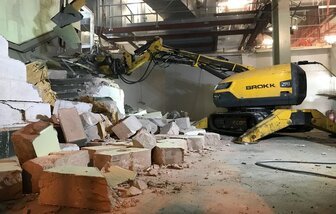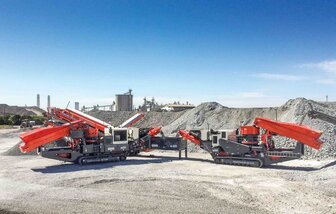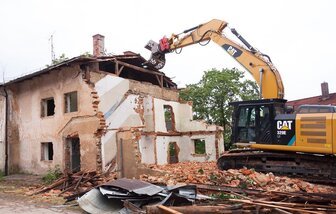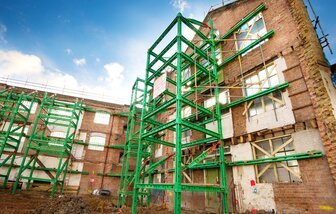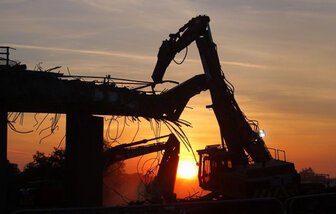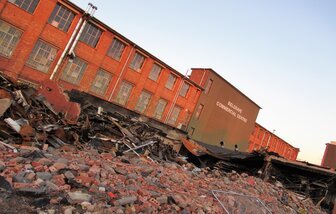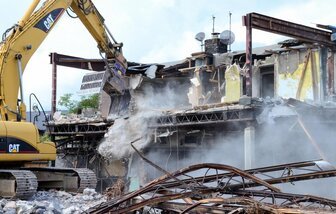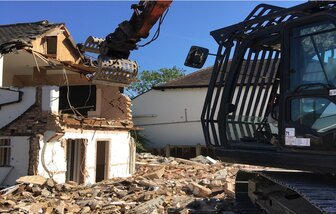Complete Demolition Services Contractors in Hull
Complete Demolition is your trusted partner for demolition services in Hull and surrounding areas. We specialize in residential, commercial, and industrial demolition, utilizing state-of-the-art equipment to ensure safety and efficiency. With years of experience and a commitment to environmental responsibility, our skilled team guarantees quality results while adhering to industry regulations. Choose us for a friendly, transparent approach to your demolition needs, and rest assured that your project is in capable hands.
Welcome to Complete Demolition Contractors Hull: Your Go-To Demolition Experts
Welcome to Complete Demolition Contractors, a premier demolition contractor serving the communities of Hull, Bransholme, Kingswood, Sutton, Hessle, Brough, Swanland, North Ferriby, Brantingham, Anlaby, Melton, Welton, and Elloughton.
Our reputation as trusted professionals in the demolition industry is built on years of dedicated service and commitment to excellence.
Our Demolition Services In Hull
At Complete Demolition Contractors, we offer a comprehensive range of demolition services tailored to meet the unique needs of each project.
Whether it’s residential, commercial, or industrial demolition, our expert team utilizes state-of-the-art equipment and techniques to ensure safety and efficiency. We pride ourselves on maintaining high standards of environmental responsibility throughout our operations.
Why Consider Us?
Choosing a reliable demolition contractor is crucial for the success of any project. Our team of skilled professionals understands the complexities of demolition and is dedicated to delivering quality results.
Our clients in Hull and surrounding areas appreciate our friendly approach, transparency, and commitment to adherence to industry regulations. With Complete Demolition, you can rest assured that your project is in safe hands.

TOTAL Building demolition & Land Remediation company Hull

Comprehensive Demolition Services in Hull
At Complete Demolition, we take pride in offering a wide range of demolition services meticulously designed to meet the diverse needs of our clients in Hull and surrounding areas.
Our experienced team is equipped to handle any project, whether residential, commercial, or industrial, with both professionalism and expertise. We believe that no project is too big or too small for us, and we are dedicated to delivering outstanding results every time.
Residential Demolition Solutions
If you’re planning a renovation or rebuild, our residential demolition services are here to assist you. Our experts carefully assess your property to develop a customized demolition plan, ensuring a smooth and efficient process.
Safety is our utmost priority; we implement all necessary precautions to protect neighboring structures and the environment throughout the entire demolition process.
Commercial and Industrial Expertise
When it comes to commercial properties, minimizing downtime and disruption is essential. Our commercial demolition services are tailored to your unique requirements, whether it involves partial demolition, an interior strip-out, or complete building removal.
For industrial projects, we possess the necessary expertise to manage complex structures and hazardous materials safely. Our trained professionals employ best practices to ensure compliance with safety standards and environmental regulations, setting us apart in the industry.
Fire damaged demolition & strip out experts Hull

The Importance of Choosing a Trusted Partner for Building Demolition in Hull
When it comes to building demolition in Hull, having a trusted partner is paramount. At Complete, we understand the complexities involved in safe and efficient demolition practices.
Our dedicated team is well-versed in local regulations, ensuring compliance while delivering exceptional services tailored to meet your needs, whether it’s a residential property or a large commercial structure.
Enhancing Safety and Efficiency
Engaging a professional demolition company like Complete not only enhances safety, but it also streamlines the entire demolition process.
We provide comprehensive services that encompass planning, execution, and site clearance. Each member of our experienced team is equipped to handle all aspects of demolition, which ensures every project is completed on time and within budget.
Our Commitment to Sustainable Practices
At Complete, we recognize the importance of environmental responsibility in construction and demolition. We prioritize sustainable methods throughout our demolition activities in Hull.
By recycling materials whenever possible and disposing of waste responsibly, we aim to minimize environmental impact and contribute to a greener future.
In conclusion, if you are looking for a leading building demolition company in Hull, look no further than Complete.
Our expertise, combined with our commitment to safety and sustainability, makes us the ideal choice for your demolition needs. Contact us today to learn more about how we can assist you with your next project.
TOTAL Construction Soft strip out demolition contractors in Hull
Expertise in Soft Strip Demolition Services in Hull
Complete Demolition is a leading soft strip demolition company situated in Hull, renowned for our unwavering commitment to delivering high-quality services.
With over 100 years of combined experience, our dedicated team has successfully built a robust reputation, handling a diverse range of projects from residential to commercial.
Commitment to Expertise and Safety
Our management team at Complete Demolition comprises seasoned professionals dedicated to maintaining the highest standards in the industry.
Soft strip out demolition requires precise planning and meticulous execution. We take pride in ensuring that every aspect of a project is approached with the utmost efficiency and safety, guided by our specialists.
Building Partnerships for Success
We have established fruitful partnerships with local authorities, property developers, house builders, hotels, restaurants, and housing associations.
By leveraging our extensive knowledge and experience in soft strip demolition, we effectively manage every phase of a project, consistently exceeding client expectations.
Whether it’s an extensive commercial property or a small renovation, we are well-equipped to handle diverse client needs, delivering exceptional results every time.
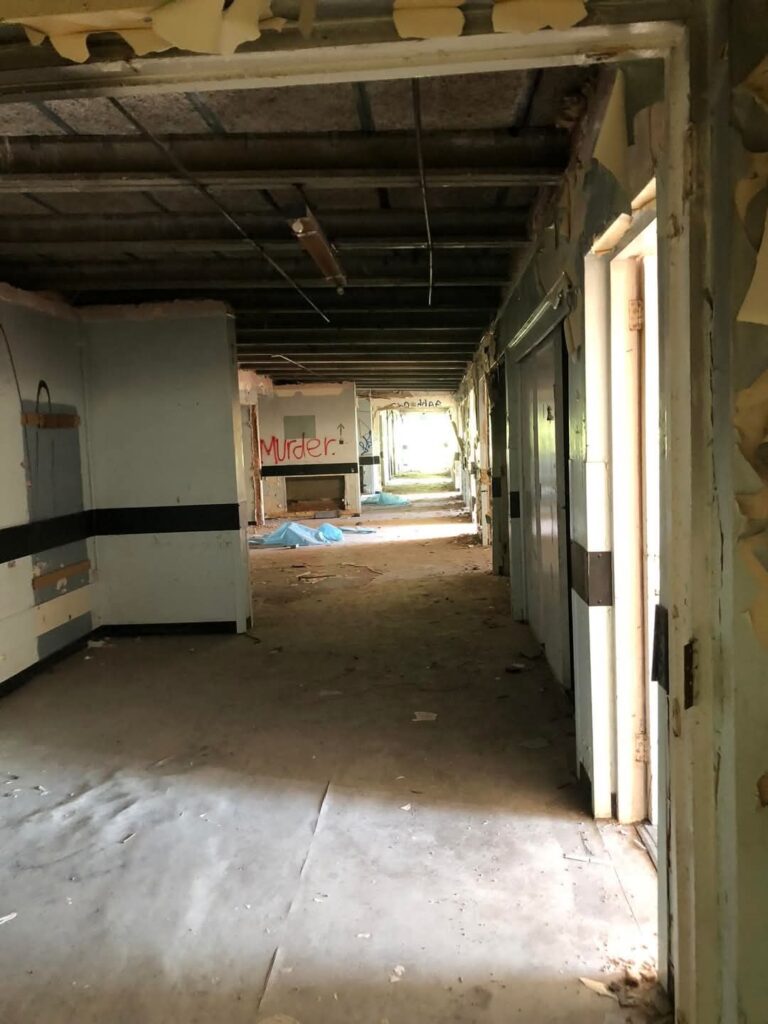
Enabling Works Contractors in Hull

Understanding the Importance of Emergency Demolition Services in Hull
Emergency demolition services play an essential role during unforeseen circumstances, primarily caused by structural failures or hazardous conditions.
For building owners in Hull, recognizing the urgency associated with these situations is crucial. A rapid intervention can not only prevent additional damage but also safeguard the lives of occupants and protect neighboring properties.
Common Situations Necessitating Emergency Demolition
Various emergencies can lead to the dire need for demolition services. Significant structural impairments, fire damage, and the discovery of unsafe materials are among the most common reasons.
For instance, properties may suffer severe instability following harsh weather conditions or construction accidents, triggering an immediate requirement for demolition.
In cases where hazardous environments are involved, such as those containing toxic substances like asbestos, prompt action becomes even more pivotal.
The Assurance of Professional Intervention
Engaging a professional demolition service ensures the demolition is carried out safely and complies with local regulations in Hull.
Skilled teams are specially trained to manage emergencies efficiently, significantly reducing the risks associated with unplanned demolitions.
Our expertise not only facilitates a swift demolition process but also assists in planning acceptable remediation strategies to restore safety and compliance within the affected areas.
FREQUENTLY ASKED QUESTIONS ABOUT OUR DEMOLITION SERVICES IN HULL
What is Soft Strip Out Demolition?
Soft strip out demolition is an essential initial phase in refurbishment or redevelopment projects. It involves safely removing non-structural elements from a building without compromising its integrity. This process is particularly relevant for properties in regions like Hull, Bransholme, Kingswood, and Sutton, where older buildings may require such services to prepare them for modern enhancements.
Why Choose Soft Strip Out?
Opting for soft strip out demolition is beneficial for several reasons. It minimizes waste through careful segregation of materials, thereby promoting recycling efforts. In areas such as Hessle, Brough, and Swanland, choosing eco-friendly demolition practices is becoming increasingly important. It not only aligns with sustainability goals but also enhances the reputation of involved contractors within the community.
The Process and Its Advantages
The soft strip out process involves planning, setting up safety measures, and executing the demolition efficiently. Contractors ensure that hazardous materials, such as asbestos, are handled according to strict regulations, particularly in properties located in Melton, Welton, and Elloughton. By prioritizing safety and compliance, businesses can save time and reduce risk, making the transformation of spaces in North Ferriby and Brantingham smoother and more effective.
What is Demolition?
The demolition process involves the dismantling of buildings and structures. It is essential to approach this task with care, considering the impact that it may have on the environment and the community. Whether you are considering a project in Hull, Bransholme, Kingswood, Sutton, Hessle, or any other local area, understanding the intricacies of demolition is crucial.
Key Steps in the Demolition Process
The demolition process typically begins with thorough planning and obtaining necessary permits. In areas such as Brough, Swanland, North Ferriby, and Brantingham, adhering to local regulations is vital for ensuring safety and compliance. Once planning is complete, a site assessment is conducted to identify any hazardous materials, followed by the actual demolition, which can include approaches like mechanical demolition or deconstruction.
Considerations for Local Communities
For those in Anlaby, Melton, Welton, and Elloughton, understanding the demolition process is not just about the construction details; it’s about community impact and environmental considerations. Demolition projects should always aim for minimizing disruption while maintaining safety standards. Engaging with local residents and stakeholders is critical for fostering a friendly relationship and ensuring a smooth process.
Overview of Section 80
Section 80 of the Town and Country Planning Act 1990 establishes a legal framework governing demolition works across England, including areas such as Hull and Bransholme. This pivotal piece of legislation mandates that anyone planning to demolish a building must notify the local authority. The notification requirement is crucial because it allows the council to assess potential impacts on the environment, surrounding properties, and the community at large. Failure to comply with this requirement may lead to legal repercussions and penalties for the parties involved.
The primary purpose of Section 80 is to ensure that demolition activities are conducted responsibly, considering factors such as safety, environmental protection, and the conservation of local heritage. By requiring prior approval, local authorities can evaluate whether the demolition could negatively impact adjacent structures or public spaces. This process not only helps maintain the aesthetic integrity of the area but also promotes the thoughtful development of urban spaces, which is particularly vital in densely populated locations like Hull.
Understanding the implications of Section 80 is essential for various stakeholders, including contractors, property owners, and local authorities. Contractors must be aware of the necessary procedures to avoid delays and additional costs. Property owners benefit from knowing that adherence to this section can influence project timelines and community relations. Local authorities, on the other hand, play a critical role in ensuring compliance with these regulations while balancing development interests with community welfare.
In conclusion, a comprehensive understanding of Section 80 is fundamental for those involved in construction and demolition within Hull and its surrounding areas. Navigating these legalities effectively can significantly contribute to sustainable development and the overall success of projects in the region.
Demolition Requirements and Procedures
Demolition works in Hull and its surrounding areas are governed by specific requirements as outlined in Section 80 of the relevant legislation. For any demolition project, property owners or contractors must first apply for demolition consent from the local authority. This is a crucial step to ensure that the proposed works comply with local regulations and safety standards.
When applying for this consent, several key documents are required. These typically include a completed application form detailing the scope of the demolition, plans illustrating the site layout, and an environmental impact assessment. It is essential to provide comprehensive information to facilitate the evaluation of the application. Furthermore, applicants are often required to notify the local community and surrounding properties about the intended demolition, as part of the consultation process.
The role of local authorities in this procedure is to assess the impact of the proposed demolition on the environment, public safety, and the community at large. Authorities such as those in Kingswood, Sutton, and Hessle conduct thorough evaluations of submitted applications to determine whether the demolition meets established criteria. If the application is approved, it is commonly accompanied by conditions that must be adhered to throughout the demolition process. This could involve measures for dust control, the management of hazardous materials, and ensuring minimal disruption to neighboring properties.
Additionally, local authorities may insist on a demolition method statement that outlines the procedures and techniques to be employed during the demolition works. This documentation is critical as it provides guidelines for implementing safe demolition practices. Ensuring compliance with all requirements and procedures outlined in Section 80 is vital for the successful execution of demolition projects in the region.
Impacts of Demolition on Local Communities
Demolition works are a critical component of urban development, influencing communities such as Brough, Swanland, North Ferriby, Brantingham, and Anlaby. These activities can lead to significant transformations within local environments, often presenting both opportunities and challenges. One of the primary positive impacts of demolition is the potential for revitalization, as old or dilapidated structures are removed to make way for new developments. This can enhance the overall aesthetic of the community, attract investments, and provide modern amenities that cater to the needs of residents.
However, the demolition process also raises several concerns that communities must navigate. Disruption during demolition can affect local traffic patterns, create noise pollution, and produce dust or debris, potentially impacting resident health and well-being. Furthermore, the loss of historic buildings may provoke sentiments of nostalgia and fear among residents about the changing character of their neighborhoods. Such feelings can lead to resistance and opposition from community members who are concerned about losing their cultural heritage and sense of place.
Environmental considerations are another significant aspect associated with demolition works. The removal of structures can release harmful substances into the environment, emphasizing the need for careful planning and adherence to regulations to mitigate negative consequences. Local authorities must ensure that developers implement environmentally friendly practices during demolition to minimize ecological disturbances and support sustainability initiatives.
Engaging with the community throughout the demolition process is essential to address concerns, gather local input, and foster transparency. Effective communication helps to ensure that community sentiment is taken into account and can dictate the success of future development projects. By prioritizing community engagement, local governments and developers can facilitate smoother transitions, ultimately leading to a more harmonious relationship between demolition activities and the affected communities.
Case Studies and Best Practices
In recent years, Hull and its surroundings, including Melton, Welton, and Elloughton, have witnessed numerous demolition projects that comply with Section 80 regulations. These projects serve as valuable case studies, illustrating best practices and lessons learned, which are crucial for planning future demolition activities.
One notable project involved the demolition of a derelict industrial site in Hull. This initiative highlighted the importance of community engagement throughout the process. Prior to the commencement of demolition works, public consultations were held to address concerns about noise, dust, and safety. The project team implemented effective communication strategies, keeping local residents informed and involved, which significantly minimized potential conflicts. The successful outcome of this project demonstrates how proactive engagement can lead to smoother demolition processes and enhanced community relations.
Another exemplary case is the recent demolition of an outdated residential building in Elloughton. This project was marked by a strong focus on sustainability. The demolition team prioritized the careful deconstruction of materials, allowing for maximum recycling and proper waste management throughout the project. By adhering to Section 80 guidelines, this project not only facilitated the environmental aspect of demolition but also showcased the benefits of reusing materials in future construction projects. It served as a reminder of the broader responsibility that demolition contractors hold in ensuring their operations align with both environmental sustainability and community interests.
Furthermore, the demolition activities in Melton emphasized the necessity of thorough planning and risk assessments. A comprehensive health and safety plan was developed, which addressed potential hazards to workers and the surrounding community. This meticulous approach significantly reduced the likelihood of accidents and ensured compliance with Section 80 regulations. The effectiveness of these measures demonstrated the importance of diligent planning and implementation in achieving successful demolition outcomes.
These case studies collectively provide essential insights and recommendations for future demolition projects in Hull and nearby areas. By focusing on community integration, sustainable practices, and meticulous planning, other contractors can learn from these successful examples, thereby enhancing the overall effectiveness of demolition works while fostering positive relationships with the surrounding communities.
Understanding Pre-Demolition Surveys
Pre-demolition surveys are critical assessments conducted prior to any demolition project. These surveys are designed to identify existing structures, evaluate their condition, and determine the presence of hazardous materials, ensuring a safe demolition process. The primary objective of a pre-demolition survey is to safeguard both workers and the surrounding environment by identifying potential risks, including asbestos-containing materials, lead paint, and other toxic substances that can pose health hazards if disturbed during demolition.
During a pre-demolition survey, trained professionals carry out thorough inspections of the property. This process typically involves visual assessments and may also require sampling and laboratory analysis to identify harmful materials accurately. A key aspect of these surveys is the careful evaluation of the building’s structure, as it is essential to ascertain which parts can be safely demolished and which may require special attention due to potential safety and environmental concerns.
In the United Kingdom, several regulations and guidelines govern pre-demolition surveys, including the Control of Asbestos Regulations 2012 and the Hazardous Waste Regulations. Compliance with these regulations is essential, as it protects workers, residents, and the environment. Adhering to these legal frameworks also helps mitigate legal liabilities for contractors and property owners, thereby ensuring that demolition projects proceed smoothly without hindrance or delay.
Additionally, the findings from a pre-demolition survey are crucial for developing a comprehensive demolition plan. This plan may include strategies for the safe removal of hazardous materials and the monitoring of potential environmental impact during the demolition process. By effectively conducting pre-demolition surveys, stakeholders can ensure that their projects align with best practices and regulatory requirements, ultimately fostering safer, more responsible demolition efforts.
The Role of Asbestos Surveys
Asbestos surveys play a crucial role in the pre-demolition process by identifying the presence of asbestos-containing materials within a building. Asbestos, a fibrous mineral that was widely used in construction due to its fire-resistant properties, poses significant health risks when its fibers become airborne. Prolonged exposure to these fibers can lead to severe respiratory conditions, including asbestosis, lung cancer, and mesothelioma. Due to these health implications, conducting an asbestos survey is not only a precautionary measure but also a vital legal obligation for property owners and developers.
There are two primary types of asbestos surveys: management surveys and refurbishment/demolition surveys. A management survey is typically conducted to ensure that any asbestos present within a building is managed safely during its ongoing use. This survey identifies any asbestos-containing materials and assesses their condition, enabling property owners to implement proper control measures. On the other hand, a refurbishment/demolition survey is essential prior to any intrusive works. This type of survey involves a more thorough inspection to locate all asbestos materials that could be disturbed during demolition or renovation activities.
Legal regulations, specifically the Control of Asbestos Regulations 2012, mandate that property owners must ensure adequate asbestos assessments are completed before any demolition. Failing to perform these surveys can lead to not only serious health risks for workers and nearby residents but also significant legal repercussions, including fines and prosecution. By recognizing the significance of asbestos surveys, stakeholders can uphold safety standards, protect public health, and comply with regulatory requirements throughout the demolition process.
Local Context: Demolition and Construction in Hull and Nearby Areas
The landscape of Hull and its surrounding areas, including Bransholme, Kingswood, Sutton, and Hessle, is undergoing significant transformation due to various construction and demolition projects. This region, characterized by its rich history, is experiencing a surge in urban development. As such, local authorities and stakeholders face numerous challenges, particularly regarding compliance with safety regulations and environmental considerations.
Given Hull’s economic revitalization, many derelict or outdated structures have become prime candidates for demolition, making pre-demolition and asbestos surveys crucial. Notably, properties built before the 1990s are often at risk of containing asbestos, a hazardous material that poses substantial health risks if disturbed. In communities sprawling from Brough to Swanland, residents have raised concerns about the potential exposure to asbestos fibers during demolition activities. This has led to a heightened scrutiny of local demolition practices, emphasizing the necessity for thorough pre-demolition assessments.
Each locality, from North Ferriby to Anlaby, has specific regulatory frameworks designed to ensure that demolition and construction projects adhere to established safety protocols. The Hull City Council, for example, mandates that contractors conduct a comprehensive asbestos survey before any demolition work begins. This regulatory measure serves not only to protect the workers involved but also the wider community from potential health hazards. Moreover, recent developments that promote sustainable construction practices are paving the way for the incorporation of more environmentally friendly materials and methods, thereby aligning local interests with broader national targets for sustainability.
In summary, the demolition and construction landscape in Hull and its neighboring areas presents unique challenges and opportunities. Understanding the local context, including the importance of adhering to safety regulations and addressing community concerns about asbestos, is essential for successful project implementation in this evolving environment.
Consequences of Neglecting Surveys
The neglect of pre-demolition and asbestos surveys can lead to numerous detrimental consequences, affecting not only the immediate project but also wider community health and safety. One of the most significant repercussions is the legal implications associated with failing to identify hazardous materials. In the UK, regulations require that comprehensive surveys be conducted prior to any demolition work. If these are overlooked, legal action can be taken against property owners and contractors. This could result in fines and sanctions, as well as a negative impact on a business’s reputation.
In terms of health hazards, asbestos is a particularly concerning material. Exposure to asbestos fibers can lead to serious illnesses, including mesothelioma, lung cancer, and asbestosis. Failing to conduct an asbestos survey may inadvertently expose workers and residents to these harmful substances, leading to long-term health implications. For example, if asbestos is disturbed during demolition without proper precautions, it can release fibers into the air, putting individuals in proximity at risk.
Furthermore, neglecting appropriate surveys can cause significant project delays. If hazardous materials are discovered during the demolition phase without prior identification, the project may be halted while remediation plans are developed. Such delays can increase costs and extend timelines, ultimately affecting a client’s bottom line.
Issues concerning the environment also arise from inadequate surveying. Improper handling or disposal of asbestos can contaminate local soil and water sources, leading to long-standing environmental damage. A notable case illustrating this issue occurred in Hull, where a failure to conduct proper surveys resulted in widespread contamination, necessitating extensive cleanup operations that cost significant public resources.
Thus, it is vital to recognize the importance of conducting thorough pre-demolition and asbestos surveys to avoid these potentially severe consequences.
Introduction to Demolition Companies
Demolition companies play a crucial role in the construction and renovation sectors, specializing in the dismantling of structures for various purposes. Their primary responsibility involves safely tearing down buildings, which can range from residential homes to large commercial developments. The importance of these companies lies not only in their ability to clear sites for new construction but also in their expertise in managing the complexities associated with deconstruction. A well-executed demolition project ensures that the site is prepared efficiently and safely for subsequent phases of construction.
Demolition companies are adept at handling various types of projects, including but not limited to residential demolitions, commercial reconstructions, and industrial site clearances. Each project requires careful consideration of multiple factors, such as site conditions, environmental regulations, and safety protocols. To this end, these companies typically employ skilled professionals who possess specialized knowledge in machinery operation, waste management, and hazard mitigation. The expertise of demolition workers is vital to preventing accidents while maximizing efficiency throughout the process.
Moreover, demolition is not merely about destruction; it also involves salvaging materials whenever possible. Many demolition companies focus on recycling and reusing materials, minimizing waste by ensuring that valuable resources are not simply discarded. This practice aligns with the growing emphasis on sustainability within the construction industry, which seeks to reduce its environmental impact. In regions such as Hull, Bransholme, and Kingswood, the operations of demolition companies are often tailored to local regulations and community needs, further highlighting their importance in the urban development landscape.
Regulatory and Safety Considerations
Demolition companies in Hull and its surrounding areas operate under a strict framework of regulations and safety standards. Compliance with these laws is crucial not only to ensure the safety of the workers but also to protect the public and the environment. The UK’s regulatory body governing demolition activities prioritizes the establishment of local laws that delineate safe operational parameters and risk management strategies.
One primary regulation is the Health and Safety at Work Act 1974, which mandates that employers ensure the health, safety, and welfare of their employees and others affected by their work. Additionally, the Construction (Design and Management) Regulations 2015 underscore the significance of planning and managing construction projects, which includes the demolition phase. These regulations require demolition companies to assess risks and implement measures to mitigate them, thereby safeguarding all stakeholders.
Best practices in the demolition industry often stem from adherence to guidance provided by the Health and Safety Executive (HSE) and other industry bodies. These guidelines encompass methodologies for safely dismantling structures, managing hazardous materials, and maintaining site safety. Furthermore, demolition companies must conduct thorough risk assessments prior to beginning any project, documenting potential hazards associated with building materials, site conditions, and neighboring properties.
Another critical component of regulatory compliance includes obtaining the necessary permits before commencing demolition works. In Hull, these permits are issued by local councils, which review the planned demolition for adherence to safety and environmental standards. Environmental regulations also play a significant role; companies must manage waste responsibly and minimize the ecological footprint of their operations. This careful planning and adherence to regulatory requirements is essential for demolition companies to operate successfully in Hull and the surrounding regions, ensuring their processes are efficient and safe.
Environmental Impact and Sustainability Efforts
Demolition activities, while often perceived as necessary for urban development, significantly impact the environment. The process can generate large amounts of waste, contributing to landfill issues and pollution if not managed correctly. To mitigate these effects, demolition companies in Hull and surrounding areas are increasingly adopting sustainable practices aimed at reducing their ecological footprint.
One of the primary strategies used is effective waste management. Most demolition projects produce a variety of materials, including concrete, steel, wood, and glass. Forward-thinking companies prioritize sorting and segregating these materials at the demolition site to enhance recycling efforts. By establishing robust recycling programs, they can divert a considerable percentage of waste away from landfills. For instance, concrete can be crushed and reused as aggregate in new construction, significantly reducing the demand for virgin materials.
Additionally, demolition companies are embracing innovative technologies that promote sustainability. Advanced machinery and eco-friendly techniques such as deconstruction—where buildings are carefully dismantled rather than simply knocked down—allow for the retrieval of reusable materials. This not only minimizes waste but also lowers the environmental impact associated with the extraction and processing of new materials.
Public demand for sustainability is pushing these companies in Hull, Brough, Swanland, and nearby regions to demonstrate their commitment to the environment. Many companies are integrating sustainability into their core operations, such as conducting environmental impact assessments before commencing projects and adhering to local regulations that promote eco-friendly practices.
In conclusion, the efforts of demolition companies to minimize their environmental impact through waste management, recycling, and sustainable practices are becoming increasingly essential. As the demand for greener solutions continues to grow, it is vital that these companies lead the way in adopting methods that not only benefit their operations but also support the broader goal of environmental sustainability.
Case Studies: Successful Demolition Projects in Hull and Nearby Areas
Within the context of urban development, demolition companies in Hull and its surroundings have played a vital role in various successful projects. One notable case is the demolition of an outdated industrial site in Anlaby. The project faced significant challenges due to the presence of hazardous materials, which required meticulous planning and execution. The demolition company utilized innovative containment strategies to safely remove these materials while adhering to environmental regulations. This careful approach not only ensured the safety of workers and local residents but also allowed for the timely transformation of the site into a modern residential area, contributing to the community’s housing needs.
Another exemplary project took place in Melton, where a dilapidated shopping center was scheduled for demolition. The challenge was amplified by the structure’s proximity to active retailers and residential properties. Employing advanced demolition techniques, the company developed an extensive safety plan that included noise and dust control measures. This forward-thinking approach minimized disruptions to the surrounding businesses. Following the successful demolition, the area was repurposed to accommodate a new community hub, fostering local economic growth and providing much-needed recreational spaces for residents.
In Welton, a prominent case involved the teardown of an old public building marred by structural issues. The demolition company faced the challenge of preserving the adjacent historical structure while safely dismantling the problematic building. Utilizing precision demolition methods, they were able to navigate around the sensitive site, executing the work without causing any harm to the neighboring property. The project’s positive outcome resulted in the establishment of a new educational facility that serves the community, showcasing the potential for redevelopment that demolition companies bring to urban areas.
These case studies highlight not only the skills and expertise of demolition companies in Hull but also their commitment to contributing positively to the urban landscape. The effective strategies employed demonstrate the significance of careful planning, innovative techniques, and community-focused outcomes in the realm of demolition projects.
Introduction to Demolition and Site Clearance
The demolition process plays a crucial role in construction and urban development, serving as the initial step toward revitalizing or repurposing an area. It involves systematically dismantling structures, ranging from residential buildings to commercial establishments, allowing for the cleared site to be redeveloped or repurposed. Demolition not only removes outdated or unsafe structures but also paves the way for new developments that can strengthen communities, improve infrastructure, and enhance the aesthetic value of the locality.
Site clearance follows the demolition process, encompassing the removal of debris, hazardous materials, and landscaping elements to prepare the area for new construction. This phase is equally critical as it ensures the site’s suitability for upcoming projects and compliance with local regulations. Potential projects may include new homes, commercial spaces, or recreational facilities, all of which can contribute positively to the local economy and community development.
Various types of structures may necessitate demolition, including residential homes, industrial buildings, and public infrastructure such as bridges or schools. Each of these categories demands distinct approaches and considerations, particularly regarding safety measures and environmental impact. Regulatory considerations play a vital role, with strict guidelines in place to ensure the demolition process adheres to health and safety standards, environmental protection laws, and zoning requirements.
In the context of Hull and its surrounding areas, including Bransholme, Kingswood, Sutton, Hessle, Brough, Swanland, North Ferriby, Brantingham, Anlaby, Melton, Welton, and Elloughton, understanding these aspects of demolition and site clearance becomes imperative. Local demographics, infrastructure, and community needs influence the type of projects that can be initiated, ultimately shaping the urban landscape of these regions. Thus, a comprehensive understanding of demolition and clearance processes is essential for stakeholders involved in urban development initiatives.
Factors Affecting Demolition Timelines
Demolition projects can vary significantly in duration, influenced by a multitude of factors that need careful consideration. The size and complexity of the structure being demolished are paramount in determining the timeframe. Larger buildings or those with complex architectural features often require more time for safe dismantling, compared to simpler one-story structures. The presence of hazardous materials, such as asbestos or lead, complicates the demolition process further, necessitating specialized procedures and additional safety measures that can extend project timelines significantly.
Site accessibility is another critical element influencing how quickly a demolition can proceed. If the location is difficult to access due to narrow roads or limited parking, it may take additional time to adequately mobilize equipment and personnel. Contractors may also face delays when they must coordinate with local authorities to ensure compliance with traffic or safety regulations during demolition. Additionally, adverse weather conditions can hamper progress, as heavy rain, snow, or high winds may create unsafe working environments or delay the arrival and operation of equipment.
Local regulations and permitting processes play a vital role in determining how swiftly a demolition project can commence. Obtaining the necessary permissions can be time-consuming, and contractors must adhere to established guidelines that may vary by region. The demolition contractor’s experience and expertise greatly impact the efficiency of the process; a well-resourced contractor can execute projects more swiftly and effectively, minimizing potential setbacks. Overall, these factors create a framework within which demolition timelines are established, emphasizing the importance of thorough planning and consultation before commencing any demolition project.
Site Clearance Process: Steps and Best Practices
The site clearance process is a critical phase following demolition, ensuring that the area is safe, compliant with regulations, and ready for future development. The first integral step in this process is debris removal. This involves the systematic collection and transportation of all construction waste, including concrete, metal, wood, and hazardous materials. Proper handling of hazardous substances is crucial to safeguarding both workers and the environment. Often, demolition companies will collaborate with specialized waste management organizations to facilitate this task.
Once debris has been cleared, site grading becomes the next priority. This step involves leveling the ground, ensuring proper drainage, and preparing the land for subsequent construction activities. Grading must be executed with precision, as it sets the foundation for any new structures or landscaping. It is essential to consider the overall topography and existing site conditions during this phase, which can influence the future development’s stability and aesthetics.
Environmental considerations play a significant role in the site clearance process. Effective recycling and waste management strategies not only comply with local regulations but also contribute to sustainability. Materials like metal and concrete can often be recycled, reducing landfill waste and conserving resources. Many jurisdictions in Hull and surrounding areas have specific guidelines for waste disposal, making adherence to these regulations paramount. Additionally, best practices dictate that project managers maintain clear communication channels with local authorities and the community, minimizing disruptions and ensuring transparency throughout the clearance process.
In summary, a well-executed site clearance process involves a sequence of methodical steps that emphasize safety, environmental responsibility, and compliance with regulatory frameworks. By adhering to established best practices, companies can efficiently prepare sites for their next phase of development while fostering community trust and supporting ecological sustainability.
Case Studies of Successful Demolition and Site Clearance
In Hull and its surrounding areas, a variety of demolition and site clearance projects have successfully demonstrated effective strategies and practices. This section discusses several case studies that specifically shed light on the challenges faced, solutions implemented, and lessons learned from these endeavors. Such case studies provide valuable insights into the nuances of demolition practices tailored to local contexts.
One notable project occurred in Bransholme, where a dilapidated shopping complex required not only demolition but also extensive site clearance. The primary challenge was the presence of hazardous materials, which necessitated careful planning and execution to comply with safety regulations. The team employed specialized personnel for the identification and removal of these materials, ensuring both compliance and safety for neighboring communities. As a result, the site was transformed to accommodate new commercial developments, demonstrating the importance of proactive safety measures.
In Kingswood, the demolition of an old residential block presented challenges of urban density and logistical constraints. The solution involved a phased demolition approach, minimizing disruption to adjacent residents while facilitating a speedy clearance process. This method not only respected the local community but also optimized the timeframe for subsequent construction projects. Key lessons from this project emphasized the significance of stakeholder engagement throughout the demolition phase.
Further afield, the site clearance of an industrial facility in Hessle illustrated the necessity for a strong environmental approach. The project incorporated waste recycling practices, minimizing the carbon footprint of the demolition process. Additionally, the lessons learned underscored how efficient resource management could turn potential obstacles into opportunities for sustainable practices.
Collectively, these case studies highlight the diverse challenges inherent in demolition and site clearance projects across Hull and surrounding areas. They illustrate that with solid planning, stakeholder engagement, and adherence to safety regulations, successful outcomes can be achieved, benefiting communities and enhancing local landscapes.
Commercial Demolition Contractors Hull
Complete Demolition has solidified its reputation as a leading commercial demolition contractor through extensive experience and a steadfast commitment to excellence.
Confined Spaces Demolition Contractors Hull
Complete Demolition’s expertise in confined robotic demolition extends across various industries, making it a versatile and reliable partner for numerous sectors. In the construction industry
Crushing & Screening
Complete Demolition provides a wide array of comprehensive services, specialising in crushing, screening, and demolition. Our capabilities span from small-scale residential demolitions
High-Rise Demolition Contractors Hull
Complete Demolition has firmly positioned itself at the forefront of high reach demolition services, a niche that demands unparalleled precision and expertise.
Asbestos Removal Company Hull
With years of experience in the industry, our team of experts has the knowledge and skills to handle all types of asbestos removal projects. We stay up-to-date with the latest industry regulations and best practices.
House Demolition Company Hull
Complete Demolition offers expert house demolition services with a focus on safety and efficiency. Our skilled team follows stringent safety protocols, manages hazardous materials like asbestos
Chimney Demolition Company Hull
Complete Demolition takes pride in its team of highly skilled professionals who possess extensive experience in commercial chimney demolition. Our expertise spans across projects of various sizes
Facade Retention Hull
Complete Demolition stands out as a leader in the field of facade retention and preservation. With years of experience and a portfolio of successful projects, they have earned a reputation for excellence.
Bridge Demolition Hull
Complete Demolition has carved out a reputation as a leading authority in bridge demolition services. With a history spanning numerous years in the industry, the company possesses a wealth of knowledge
Decommissioning Contractor
Complete Demolition has established itself as a leading specialist in the field of building and asset decommissioning. With years of extensive experience, the company has managed a wide array
Building Soft Strip Out Hull
Complete Demolition stands at the forefront of the demolition industry, renowned for its excellence in providing comprehensive soft strip out demolition services. With a wealth of experience
Emergency Demolition Hull
Complete Demolition has established itself as a reputable provider of emergency demolition services in the United Kingdom. Renowned for its swift and efficient responses.
Industrial Demolition Contractors Hull
Complete Demolition excels in delivering cost-effective industrial demolition projects without compromising on quality or safety. One of the key strategies employed is efficient resource
Hazardous Materials
Accurate identification is paramount in hazardous waste management, as it ensures that each type of waste is handled according to its specific requirements.
Dismantling Contractors Hull
Complete Demolition stands out among engineering contractors by offering a suite of innovative and cost-effective demolition solutions. The company integrates advanced
Partial Demolition
Complete Demolition Services, a leading provider of full and partial demolition solutions in the UK, is renowned for its commitment to excellence, safety, and environmental stewardship.
Additional services that we offer that may interest you
TOTAL Groundworks & Civils
Total Group has a strong track record in the design and construction of a wide range of Civil Engineering and Infrastructure projects, ranging from minor road improvements to major infrastructure schemes.
TOTAL Construction
At Total Group, we specialise in a wide range of construction services, including refurbishments, fit outs, complex construction projects, and interior design. Our team of skilled professionals is dedicated to delivering high-quality results
TOTAL Tarmac Surfacing
We specialise in providing top-quality tarmac surfacing and paving services throughout the UK. Our team of skilled professionals is dedicated to delivering exceptional results, ensuring that every project is completed to the highest standards
TOTAL Brownfield Remediation
Total Group have accumulated extensive experience contaminated brownfield land remediation contractor operating throughout the United Kingdom. We deliver an extensive range of brownfield remediation solutions.
Ready to start your project?
Committed to Excellence on all levels
Let's Work Together
To get started, for general enquiries simply complete the form below. Provide us with your project details, and our team will review your requirements. We will then get back to you with a customised solution that fits your needs. Whether you have a small-scale project or a large-scale development, we have the expertise and resources to handle it. Once we have received your submission, you will receive a confirmation email (Please check all your email boxes)
If you prefer, and have a project in mind and seeking a price you can also send us your project documents and any photographs directly to Price@completedemolition.co.uk We will carefully examine your documents and provide you with a competitive quote together with a timescale from inception through to completion for your project.


